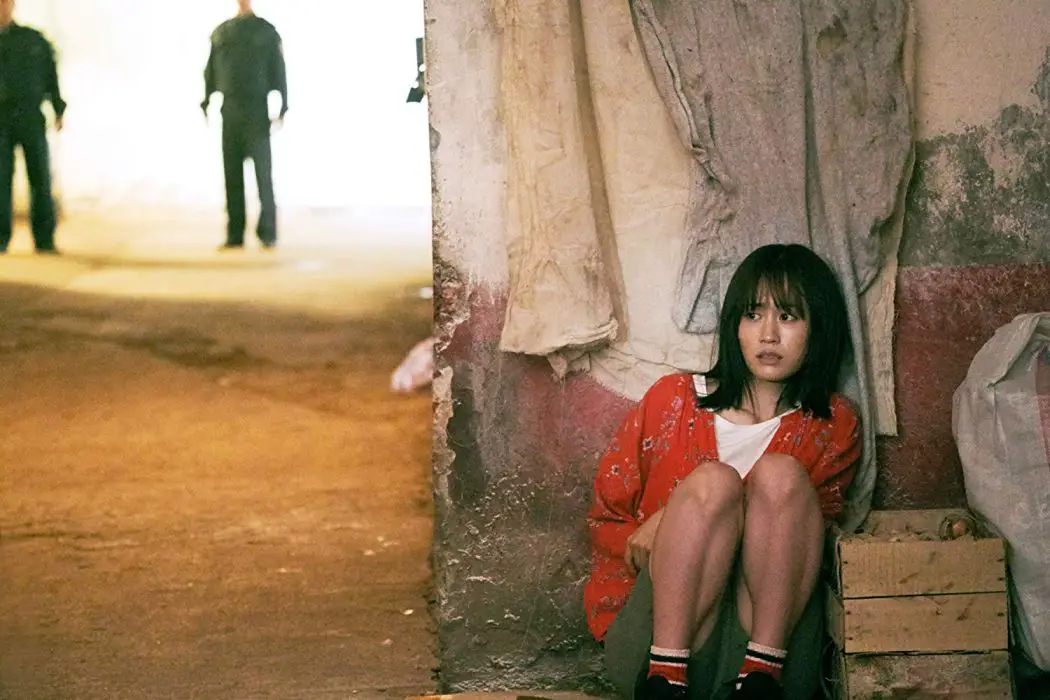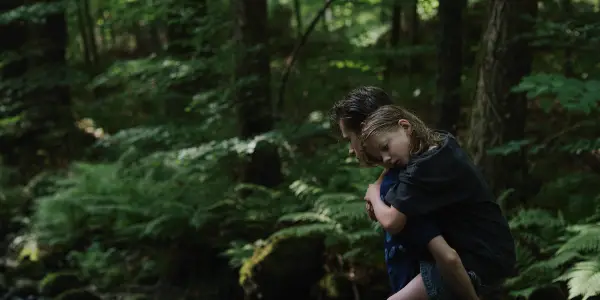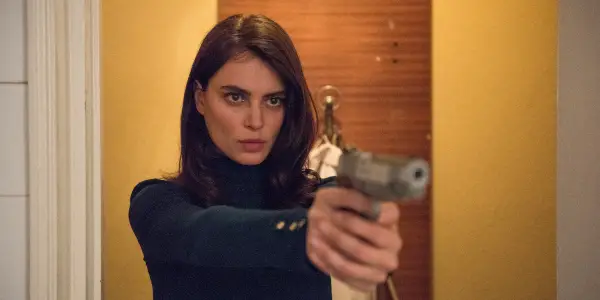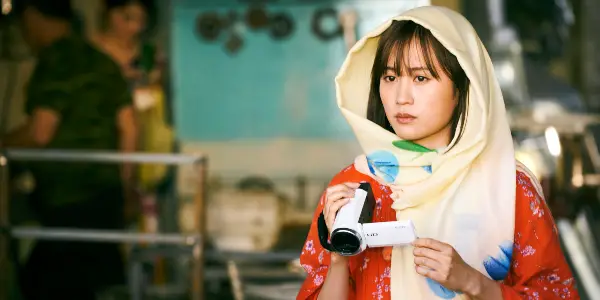NYFF 2019: I WAS AT HOME, BUT; THE WHISTLERS & TO THE ENDS OF THE EARTH

Kevin L. Lee is an Asian-American critic, producer, screenwriter and…
The next trio of films from NYFF was quite an experience. All three were long, slow, unique experiences that do better in hindsight than in the present moment of watching them. With I Was at Home, But, The Whistlers, and To the Ends of the Earth, I was treated with three films of three drastically different languages, cultures, and stylistic approaches.
I Was at Home, But continues to shape my outlook on German cinema. The Whistlers is my first peek into the Romanian New Wave. Last but not least, To the Ends of the Earth showed me how a director who is normally known for horror can take the same idea and weave it into an emotionally rewarding journey.
I Was At Home, But (Angela Schanelec)

Disconnect and alienation are, in my opinion, difficult to convey on the big screen. Lean one way and the substance will lack authenticity and come off as too emotionally manipulative, but lean the other way and the film ends up too cold and distant for the audience to care. I Was at Home, But was a film I greatly admired, but it was also a film that tested my patience.
Filmed in mostly still shots, I Was at Home, But unfolds like a series of events happening to one fragmented family, with the catalyst being the older son running away. The rest of the film is just pieces of the puzzle. Each piece offers a potential clue to the bigger picture, all playing out in an episodic nature.
For the most part, the episodic approach worked for me. From a single take conversation between the single mother (Maren Eggert) talking in a teachers’ lounge, where every single character looked like they were posing in a sculpture exhibit, to a fascinating exchange regarding the purchase of a bike, many moments in I Was at Home, But demonstrated a talent for observational storytelling, cinematography, and sound design. Eggert gives a layered albeit frustrating performance as a woman on the verge of a breakdown, hinting at pieces of information that I wish the film was a bit more upfront about.
But then there are moments that just didn’t land. Too many times, the film cuts back to a classroom, where the students are constantly re-enacting Hamlet. How and why this is relevant to the main narrative went over my head. These moments went on for too long, where the still-shot approach started to really wear on me. Then there is a long dialogue exchange, which, despite being exceptionally acted by Eggert and written by director Angela Schanelec, felt like it came out of a completely different film.
Despite the sluggish pace and severely cryptic approach, I greatly appreciated Schanelec’s calm and patient hand at guiding I Was at Home, But to a place of mood and mystifying depth. I suspect this film to be one that will age better over time in hindsight.
The Whistlers (Corneliu Porumboiu)

The Whistlers is actually my first step into Corneliu Porumboiu’s filmography, and I was surprised when I was told that this is actually a departure from what he normally makes. With The Whistlers as my only exposure to what Porumboiu is like as a filmmaker, I’ve made the following two conclusions. The first is that I want to see more of this kind of editing style and tonal confidence from him. The second is Porumboiu is a better director than he is a writer.
What we essentially have here is a spy heist movie with one heck of a gimmick. We follow a shady policeman (Vlad Ivanov) as he travels to the Spanish island La Gomera – the original title of the film – on a mission to free a corrupt businessman from prison, while attempting to stay one step ahead of the regular cops who are monitoring his every move. How does he do it? He must learn a local dialect that consists completely of loud whistles – we’re talking whistles so loud that they can travel to a recipient kilometers away.
And then I learned after seeing the film that this is actually a real thing. It’s called Silo Gomero, an actual whistled register used by the inhabitants of La Gomera and recognized by the United Nations Educational, Scientific and Cultural Organization (UNESCO). It is a concept so strange, so foreign, and so endlessly fascinating to me that I was slightly disappointed at how underused it was in the plot.
For a film that’s called The Whistlers, there’s a lot of deception and back-stabbing, structured by a series of vignettes that are named after each fictional character. Though I was a big fan of Catrinel Marlon, whose performance as the femme fatale Gilda is so lovely that you’d wish she becomes the first female James Bond, the rest of the cast deliver stiff performances that are more dead than deadpan. I adored the choice of casting Ivanov, who will never remove my impression of his character from 4 Months, 3 Weeks, and 2 Days, but this time around, he seems to have very little to work with.
How Porumboiu writes his characters in the heat of the espionage is a bit of a mess – you have your usual MacGuffin device, except I didn’t have much reason to care about whether or not the characters succeeded. Where they end up at the end, however, is quite ironic and rewarding, so much so that I wish the second act went through one more rewrite so the payoff would have a bigger oomph.
Plot-wise, this is too convoluted and emotionally lacking for my taste, but Porumboiu’s distinct quirkiness and tongue-in-cheek humor keeps The Whistlers entertaining enough to be worth a look.
To The Ends of the Earth 旅のおわり、世界のはじまり (Kiyoshi Kurosawa)

There is something about this film that spoke to me deeply about the need to connect with people and the anxiety of never knowing what you want but constantly feeling like something is missing. Director Kiyoshi Kurosawa, who has forever haunted me on alienation with his horror film Pulse, takes those complicated emotions and creates something that’s tonally jarring, absurdly fun, and deceptively moving.
To start, To the Ends of the Earth plays with one of my internal anxieties, that is being in a foreign country where almost nobody understands your language, where every street leads to a stranger place, and that perceived endlessness turns into an overwhelming wave of claustrophobia and crushing loneliness. Perhaps that is why I latched onto this film’s protagonist, Yoko (real-life pop singer Atsuko Maeda), a young Japanese woman who travels to Uzbekistan to shoot the latest episode of a travel variety show.
Within seconds, Kurosawa calls to our attention that Yoko is filming with an all-male crew. She is often ignored and not entirely seen, which feeds into her personality of passively saying yes to everything that is asked of her. What follows is an absurd exercise in Murphy’s Law – just how much can this woman suffer? How much bad luck can she get? Every set piece becomes more and more ridiculous than the next, but not only was I entertained each time, I noticed how each sequence piled on another layer of doubt within Yoko’s psyche.
Despite the elongated runtime and the sudden tonal shifts that might make you question just where the film is going, To the Ends of the Earth is very much in Kurosawa’s control. He knows how to let the camera linger long enough to make you think twice about what you’re seeing, and he certainly knows how to take a series of seemingly trivial events and have them lead to some form of emotional catharsis. There were also some smart decisions made at the start of the film, such as the intentional lack of subtitles whenever someone is speaking Uzbek, in order to further elevate Yoko’s sense of alienation.
At first, To the Ends of the Earth feels like it meanders too much, but in hindsight, I think Kurosawa has delivered an incredible story of one woman’s transformation from loneliness to emotional freedom. Maeda gives a stunning lead performance and carries so much of the film’s weight effortlessly. You’d root for Yoko and wish throughout the film that you were her travel companion.
Does content like this matter to you?
Become a Member and support film journalism. Unlock access to all of Film Inquiry`s great articles. Join a community of like-minded readers who are passionate about cinema - get access to our private members Network, give back to independent filmmakers, and more.
Kevin L. Lee is an Asian-American critic, producer, screenwriter and director based in New York City. A champion of the creative process, Kevin has consulted, written, and produced several short films from development to principal photography to festival premiere. He has over 10 years of marketing and writing experience in film criticism and journalism, ranging from blockbusters to foreign indie films, and has developed a reputation of being “an omnivore of cinema.” He recently finished his MFA in film producing at Columbia University and is currently working in film and TV development for production companies.













